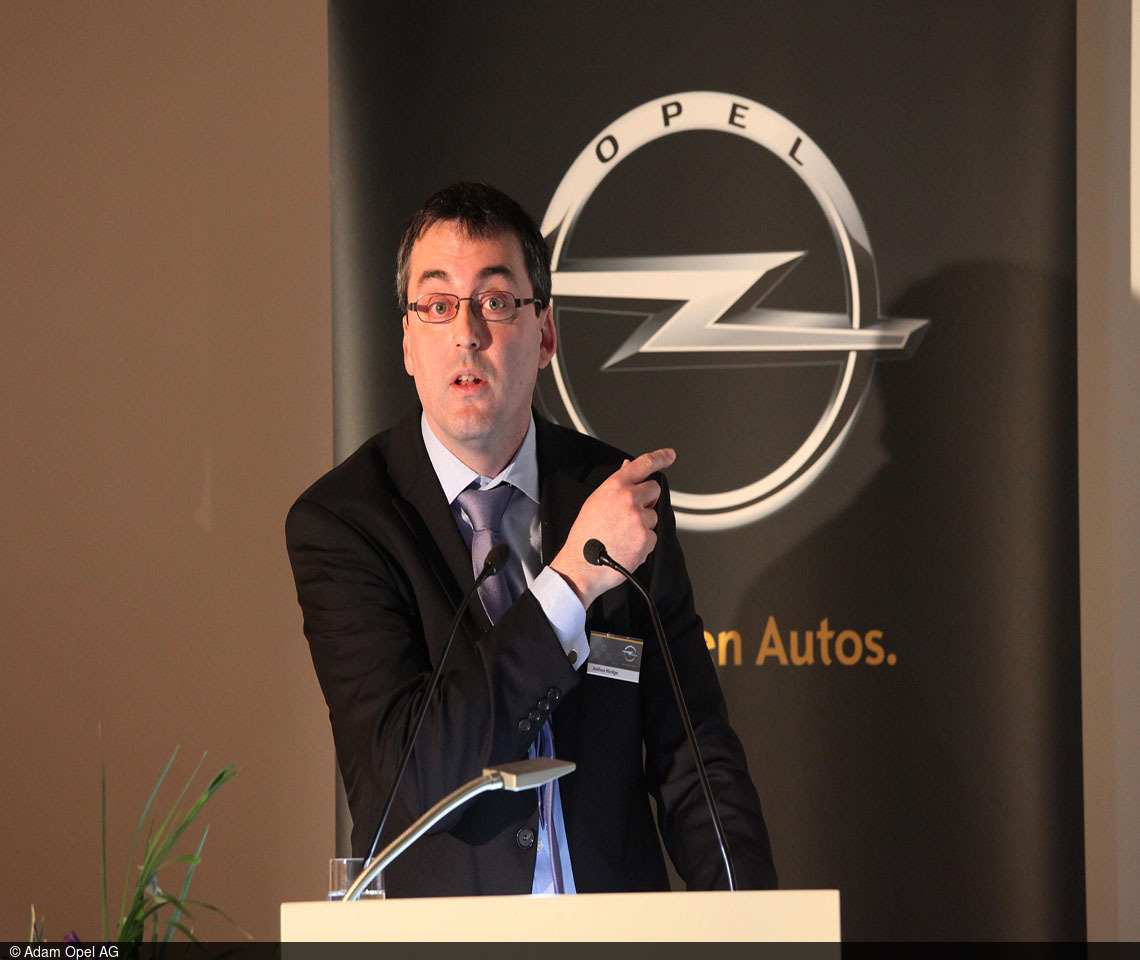ZEW and MIT Present Joint Project Results in Brussels
WorkshopOn February 26, 2015, the Centre for European Economic Research (ZEW) and the Massachusetts Institute of Technology (MIT) presented results from an ongoing project, focusing on the topic "CO2 Regulation of Cars - Truly a Success Story?" during a workshop organised by Adam Opel AG and the Representation of the State of Hessen to the EU. The workshop's main theme was the cost of existing CO2 standards versus an expansion of the EU Emissions Trading Scheme (ETS) to cover road transportation in the place of a future tightening of existing CO2 emission standards in the EU for new cars. Over 100 registered participants from the automobile industry, the European Parliament, environmental NGOs, the international research community and regional as well as national representatives took part in the workshop.
Joachim Koschnicke, Vice President Government Relations and Public Policy Europe from Opel Group, opened the workshop. In the first session, researchers Joshua Hodge and Dr. Sergey Paltsev from MIT presented their research on regulating CO2 emissions from cars and the economic impacts of CO2 mandates for new cars in Europe. In a modeling exercise, they found large cost savings from including the transportation sector in the EU ETS instead of regulating new cars by increasingly stringent emission standards. These savings derive from the use of cheaper abatement options in other sectors of the economy under the ETS, but achieve the same overall CO2 reductions.
The second session of the workshop was led by Professor Andreas Löschel, ZEW Research Associate and Professor at the University of Münster. He discussed the practical feasibility of incorporating road transport in the ETS to realise the potential efficiency gains for the European economy. A fully integrated ETS would cover 60 per cent of European CO2 emissions. He argued that in practice, it would be most cost efficient to include road transport by requiring fuel suppliers to hold emission allowances corresponding to the emissions from the fuel sold. The impact on the price of emission allowances would likely be relatively small in the short term, but rise steeply in the longer term, when the more expensive abatement measures found in transportation are required to achieve long term emission reduction goals.
The workshop finished with a lively panel debate and Q&A session with the audience, discussing innovation incentives for the automobile industry, technological potential, and effects on the EU’s global competitiveness. The panel consisted of Dr. Richard Smokers (The Netherlands Organisation for Applied Scientific Research, TNO), Philip Owen (European Commission), Dr. John Reilly and Prof. John Heywood, PhD (MIT), Prof. Dr. Andreas Löschel (ZEW and University of Münster) and Jens Gieseke (Member of the European Parliament).
